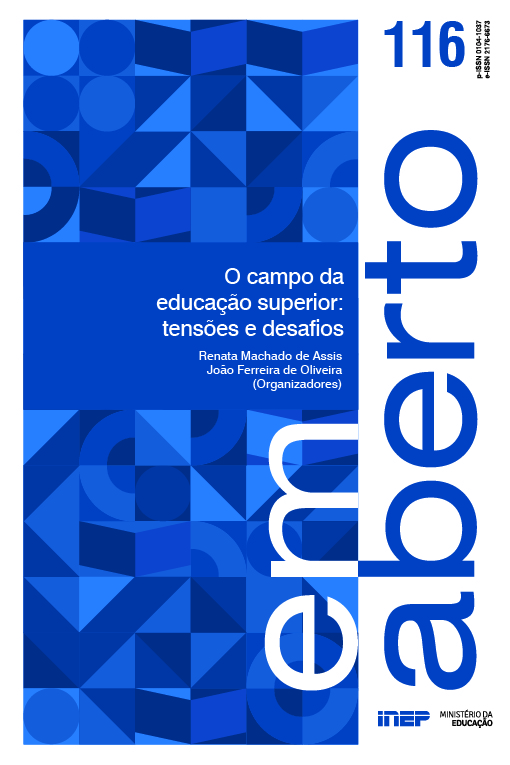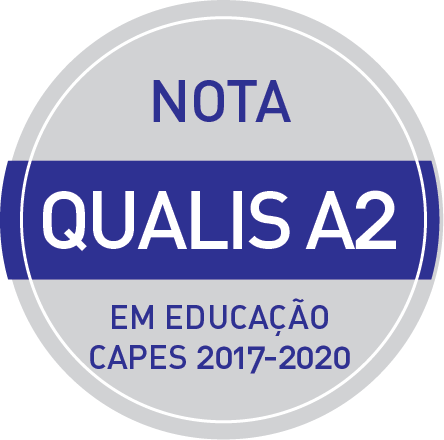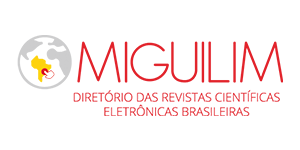Challenges and dilemmas of higher education in the knowledge economy
Abstract
The study analyzes the challenges and dilemmas in the field of higher education in the knowledge economy, arguing how this field, in emerging contexts, copes with impasses arising from the transposition of economic principles of different countries into its dynamics. We discussed how the knowledge economy contributes to the commodification of higher education and the disputes over the concept of world-class universities, associated with an expression of managerialism, the Bologna Process, and the formation of the European Higher Education Area in a globalized and competitive world. The methodology adopted is based on bibliographical research on the relationship, at the global level, between higher education and the knowledge economy, making references to the Brazilian landscape. It is concluded that, on the one hand, higher education has increasingly suffered the repercussions of the application of principles from the world of economics on its institutional policies and practices, a phenomenon that has strong implications for its growing commodification and for the induction of academic capitalism, while, on the other hand, it reiterates
its indisputable role for the development of several countries’ political projects.
Downloads
References
ALTBACH, P. G. The costs and benefits of world-class universities. Academe, [Washington, DC], v. 90, n. 1, p. 20-23, 2004.
ALTBACH, P. G.; SALMI, J. Introduction. In: ALTBACH, P. G.; SALMI, J. (Ed.). The road to academic excellence: the making of world-class research universities. Washington, DC: The World Bank, 2011. p. 1-8. (Directions in Development).
ANDERSON, P. Balanço do neoliberalismo. In: SADER, E.; GENTILI, P. (Org.). Pósneoliberalismo: as políticas sociais e o Estado democrático. Rio de Janeiro: Paz e Terra, 1995. p. 9-23.
BOURDIEU, P. Les conditions sociales de la circulation internationale des idées. Actes de la Recherche en Sciences Sociales, [s. l.], v. 145, p. 3-8, déc. 2002.
DIAS SOBRINHO, J. Educação superior: bem público, equidade e democratização. Avaliação: Revista da Avaliação da Educação Superior, Campinas, SP, v. 18, n. 1, p. 107-126, mar. 2013.
HARVEY, D. Condição pós-moderna: uma pesquisa sobre as origens da mudança cultural. 25. ed. São Paulo: Edições Loyola, 2014.
HAZELKORN, E. Rankings and the reshaping of higher education: the battle for world-class excellence. London: Palgrave Macmillan, 2011.
MARTINS, C. B. Reconfiguração do ensino superior em tempos de globalização. Educação & Sociedade, Campinas, SP, v. 42, e241544, 2021.
MARX, K. Sobre a questão judaica. São Paulo: Boitempo, 2010.
MILLOT, B. Classificar sistemas universitários é mais útil do que produzir rankings de instituições isoladas. International Higher Education, [s. l.], n. 75, p. 62-63, jan./mar. 2014. Disponível em: https://www.revistaensinosuperior.gr.unicamp.br/edicoes/ihe/IHE75port.pdf. Acesso em: 14 maio 2023.
MOROSINI, M. C. Qualidade da educação superior e contextos emergentes. Avaliação: Revista da Avaliação da Educação Superior, Campinas, SP, v. 19, n. 2, p. 385-405, jul. 2014.
OLIVEIRA, J. F. A pós-graduação e a pesquisa no Brasil: processos de regulação e de reconfiguração da formação e da produção do trabalho acadêmico. Práxis Educativa, Ponta Grossa, v. 10, n. 2, p. 343-363, jul./dez. 2015.
PEREIRA, E. M. A.; ALMEIDA, M. L. P. Apresentação. In: PEREIRA, E. M. A.; ALMEIDA, M. L. P. (Org.). Reforma universitária e a construção do espaço europeu de educação superior: análise de uma década do Processo de Bolonha. Campinas, SP: Mercado das Letras, 2011. p. 7-16.
ROBERTSON, S. L. O processo de Bolonha da Europa torna-se global: modelo, mercado, mobilidade, força intelectual ou estratégia para construção do Estado? Tradução: Alfredo Macedo Gomes e Roderick Somerville Kay. Revista Brasileira de Educação, Rio de Janeiro, v. 14, n. 42, p. 407-422, set./dez. 2009.
SANTOS, M. Por uma outra globalização: do pensamento único à consciência universal. 24. ed. Rio de Janeiro: Record, 2015. SQUIRRA, S. Sociedade do conhecimento. In: MELO, J. M.; SATHLER, L. Direitos à comunicação na sociedade da informação. São Bernardo do Campo, SP: Umesp, 2005. p. 253-274.

This work is licensed under a Creative Commons Attribution-NonCommercial 4.0 International License.
These are the terms of this Copyright Notice:
- I declare that I permanently forfeit in favor of the National Institute of Educational Studies and Research (INEP) all rights related to:
-
- editing, publication, reproduction, and distribution of the work;
- publication through digital and electronic media;
- translation of the work to any language;
- updating, re-printing, adaptation, and compression of the work;
- uploading of work in the publishing platform of INEP;
- divulging complete or parts of work through the World Wide Web (internet), whether in Brazil or foreign countries;
- authorization of third parties to execute any of the acts mentioned before.
- I explicitly declare that I am solely responsible for the opinions expressed in the work, and its publication does not violate the rights of third parties.
- I declare that the nature of said work is one of pro bono publico and, as such, I forfeit the right to any compensation regarding ownership rights granted.
- I authorize spelling and grammatical review of the manuscript, provided that the content and opinions therein remain unchanged.












